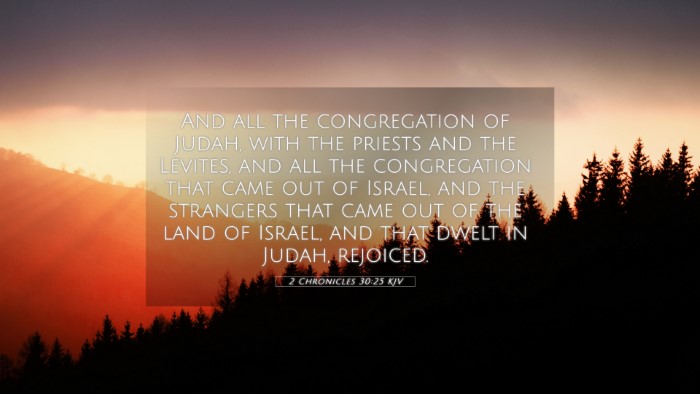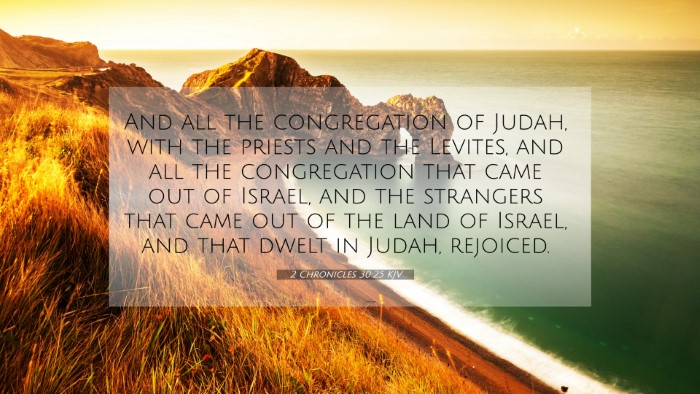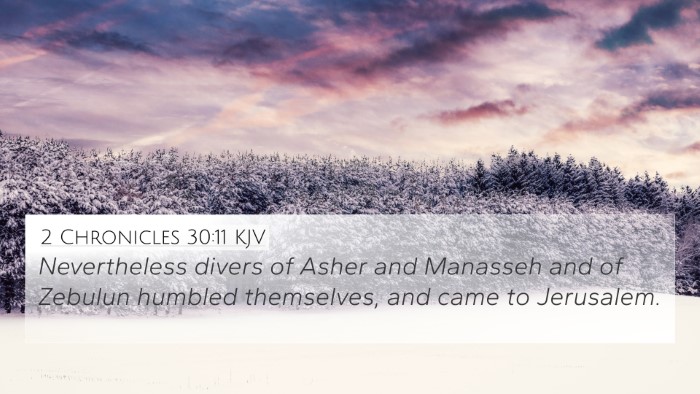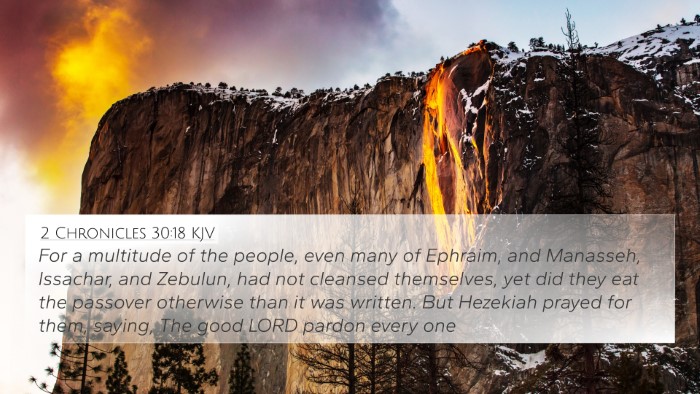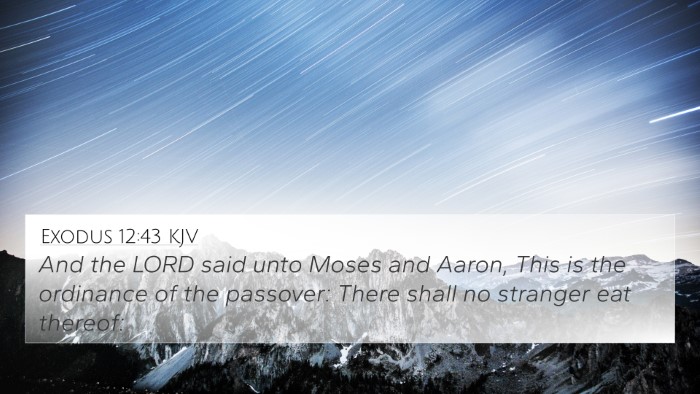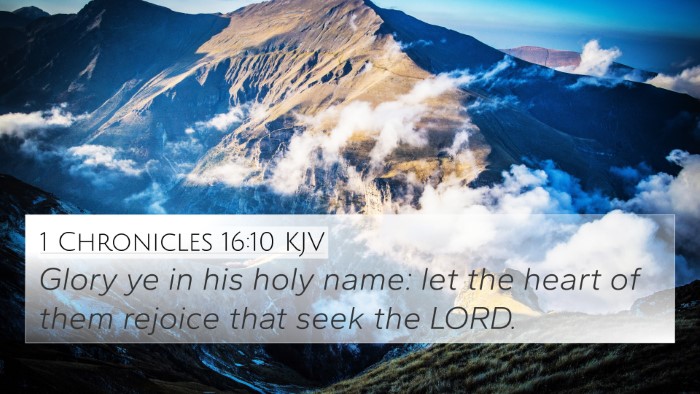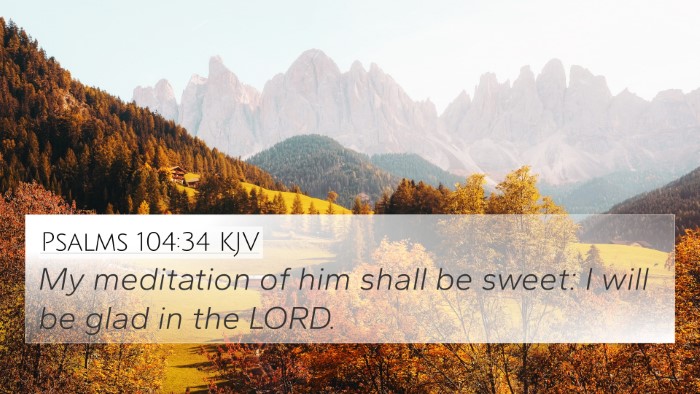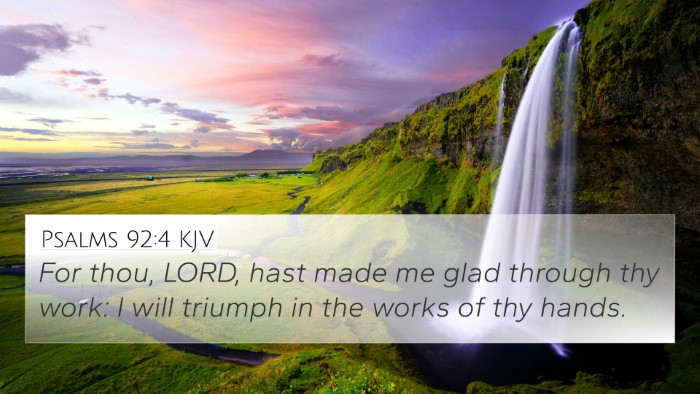Understanding 2 Chronicles 30:25
Verse: "And the whole congregation of Judah with the priests and the Levites, and all the congregation that came out of Israel, stood with great gladness in the feast of unleavened bread seven days." (2 Chronicles 30:25)
Summary of Interpretation
This verse captures a significant moment in Judah's history, focusing on the unity and joy of the people during the celebration of Passover, which emphasizes themes of repentance, restoration, and the communal worship of God. The gladness experienced by the congregation illustrates a heart open to God's grace and a desire to return to Him.
Thematic Insights
- Celebration of God's Deliverance: The feast of unleavened bread, rooted in the Israelite experience of God's deliverance from Egypt, signifies freedom and divine intervention.
- Unity in Worship: The gathering of Judah and all congregants from Israel highlights the importance of collective worship and the shared identity of God's people.
- Restoration through Repentance: This event follows a period of neglect in worship, suggesting that genuine repentance can lead to restoration and joy in the community.
Commentary Insights
Drawing insights from Matthew Henry, Albert Barnes, and Adam Clarke, the following themes emerge:
Matthew Henry's Commentary
Matthew Henry highlights the importance of this observance as a return to faithful practices leading to joy in the Lord. He underscores that the participation of all levels of society—from priests to common people—showcases the inclusive nature of God's grace.
Albert Barnes' Commentary
Albert Barnes emphasizes the communal aspect of the event, noting that this gathering signifies a strong movement towards national repentance and spiritual renewal. The prolonged celebration suggests an overflowing joy that results from returning to covenant faithfulness.
Adam Clarke's Commentary
Adam Clarke reflects on the significance of the seven days, paralleling the original Passover and the lasting joy it embodies. He contributes the idea that this festival reinstated a central aspect of the religious life that had been neglected.
Cross References
2 Chronicles 30:25 relates closely to numerous other scriptures, enhancing its meaning through inter-Biblical dialogue:
- Exodus 12:15-20: The original institution of the feast of unleavened bread.
- 2 Kings 23:21-23: The bestowing of Passover as a significant celebration in Israel.
- Deuteronomy 16:1-8: The detailed instructions regarding the festival's observance.
- Psalm 118:24: A declaration of joy and gladness in God's deliverance.
- Matthew 26:17-19: The continuation of the Passover tradition in the New Testament.
- 1 Corinthians 5:7-8: Paul’s call to celebrate with the unleavened bread of sincerity and truth.
- Nehemiah 8:10: The joy of the Lord is strength; emphasizing celebration in worship.
Tools for Bible Cross-Referencing
Utilizing a Bible concordance can enhance your understanding of related verses, allowing for an exploration of the connections between various biblical texts. Here are some tools and techniques for effective cross-referencing:
- Bible cross-reference guide: Use guides that help identify themes and concepts across the scripture.
- How to use Bible cross-references: Familiarize yourself with finding thematic connections and parallels.
- Cross-reference Bible study: Engage in deeper studies that cross-link relevant passages for broader understanding.
- Identifying connections between Old and New Testament: Discover how events and teachings from the Old Testament correspond to the New Testament teachings.
Conclusion
In summary, 2 Chronicles 30:25 not only captures a moment of joy and worship in Judah but also serves as a reflection of broader biblical themes concerning repentance, restoration, and joy. It encourages believers to understand the rich tapestry of scripture through cross-referencing and thematic connections.

